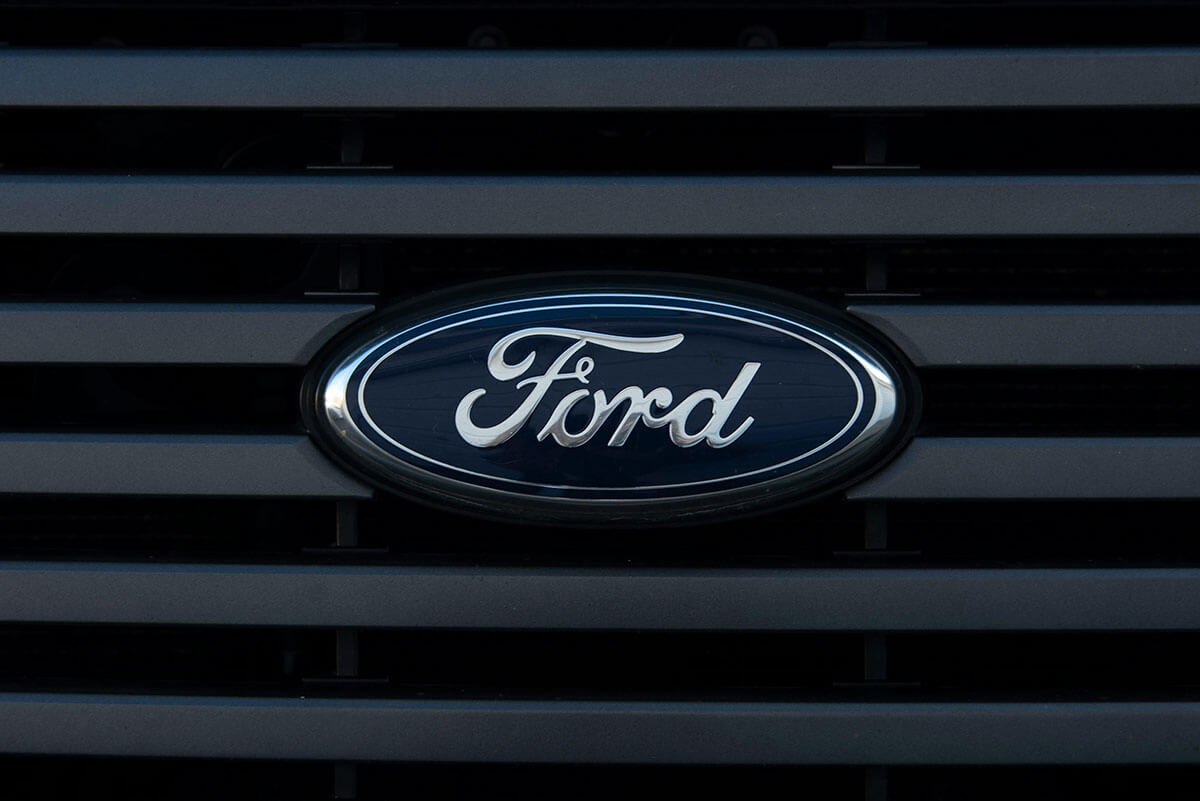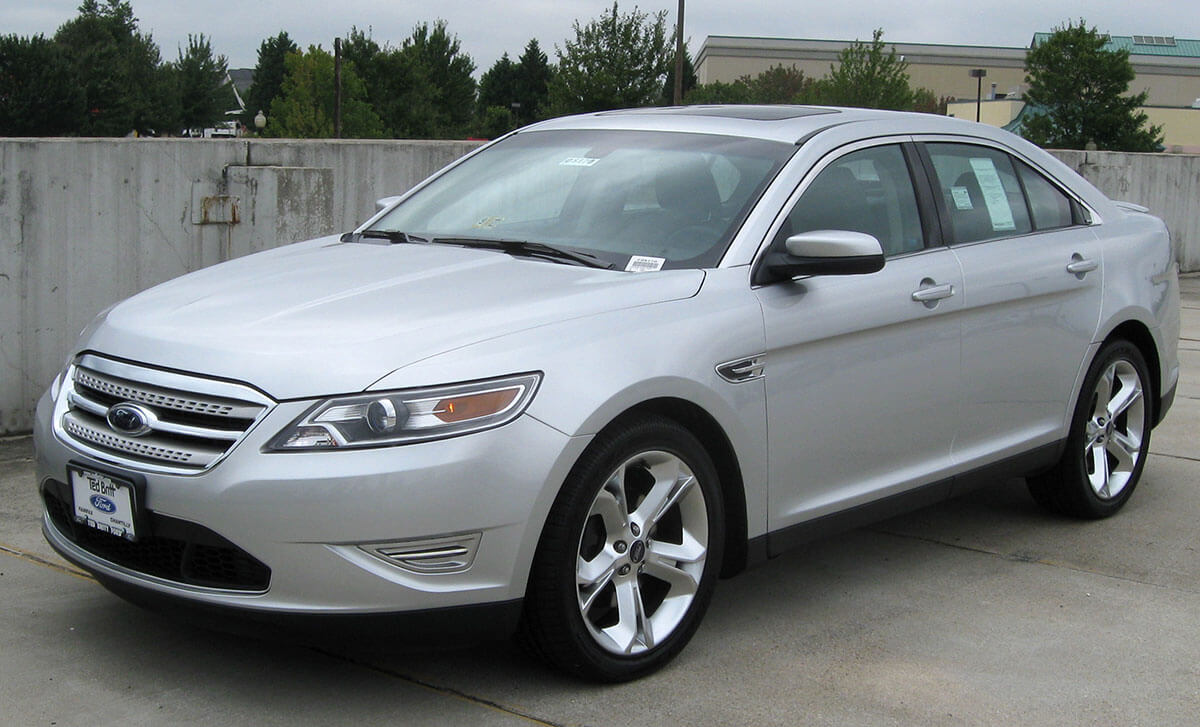We are searching for
--
Please wait. This should take only a few seconds.

We are searching for
--
Please wait. This should take only a few seconds.


Ford prides itself on being one of the oldest vehicle manufacturers and one of the companies leading the change in the global automotive industry. The company designs and manufactures quality and reliable lines of cars, SUVs, electrified vehicles, and trucks. Despite its good track record, the company has encountered multiple challenges in the past, like all other car manufacturers. One of such challenges is having reasons to recall many of its vehicle models, especially for safety-related problems.
One of Ford's recalls in the recent past, which was due to a driveshaft defect, involved approximately 185,000 model years 2021-2022 F-150s vehicles and at least 247,000 model years 2017-2022 F-350 and F-250 Super Duty vehicles. Similarly, the company issued a recall for certain 2021-2022 Ford E-Series vehicles based on Hydroboost line leak issues. It was found that the fitting between the brake Hydroboost unit and the power steering line may not have been correctly connected, which could cause a sudden loss of power steering fluid or leaks. According to the National Highway Traffic Safety Administration (NHTSA), Ford was the most recalled car brand in the United States for 2023, having made 54 recalls involving over 5.6 million vehicles that year. Some of the major Ford recalls are discussed below:
In 2023, Ford recalled over 870,000 units of model years 2021-2023 F-150 vehicles over a defective electronic parking brake system. The affected vehicles were those manufactured between January 8, 20202, and February 25, 2023, and only 1% was estimated to have been affected by this defect. This Ford recall largely involved F-150 trucks equipped with a single exhaust system. The rear axle wiring harness bundle had the tendency to contact the rear axle housing. When driving, there could be unintended activation of the electric parking brake if the parking brake wiring is damaged and the circuit shorts to ground. As a result, the damaged electric parking brake wiring could accidentally apply the parking brake while driving without the driver’s input, potentially leading to a loss of control and an increased risk of a crash.
Ford has recalled over 14.3 million vehicles since 1999 due to faulty cruise control switches, which corrode over time and can lead to fire. Affected vehicle models include some 2002 Ford E-550, 2003 F-250 through F-550, F-150, E-550, Ford Excursion, E-450, 1999-2001 Ford Explorer, 1998-2002 Ford Ranger, and 2001-2002 Ford Explorer Sport. This fault causes the system of the affected vehicle models to deactivate while in cruise control, which could lead to switches overheating and bursting into flames, even after a car has been parked and turned off.
In the affected vehicles for this Ford recall, the Speed Control Deactivation Switch (SCDC) or brake switch turns off the cruise control when the brakes are applied. The position of the switch is under the hood and placed above the brake fluid's flammable reservoirs. It is wired to the cruise control on one end and connected to the brake master cylinder on the other end. The application of brakes over time creates vacuum pressure on a seal in the brake switch, and once it fails, brake fluid will leak into the switch, and the switch will be corroded. This could cause the brake switch to overheat, increasing the risk of a fire.
Ford has recalled millions of its vehicles due to a gear shift defect since the late 1970s. The company issued the largest automobile recall of its time as a result of this fault when it recalled over 20 million vehicles a few years before 1980. The affected vehicles had the tendency to move even if the gear shift was in the park position. This fault led to several accidents, injuries, and deaths during the period, and Ford lost over $1 billion. One of the most recent Ford gear-shifting recalls was in 2022, following the recall of almost 3 million vehicles. Affected vehicles included certain 2013-2019 Ford Escape, 2013-2016 Ford Fusion, 2013-2018 Ford C-Max, 2015-2018 Ford Edge, and 2013-2021 Ford Transit Connect. The affected units had damaged or missing bearings or faulty shift cables that could prevent them from properly shifting into gear, causing them to move even when parked, increasing the risks of crashes.
This was another big Ford recall in history, and it was because of a defective fuel tank and position. As a result of poor design and positioning, the gas tanks of the Mercury Bobcat sedan and Ford Pinto vehicles manufactured between 1971 and 1978 had a high chance of rupturing in rear-end collisions, even at moderate speeds. Approximately 30,000 Mercury Bobcat sedans and 1.5 million Ford Pinto vehicles were on this Ford recall list. The solutions deployed to fix this defect included the following:
In 2021, Ford recalled almost 3 million cars with potentially defective driver-side airbags manufactured by Takata. The recall became necessary after the NHTSA discovered that the driver-side airbag inflators could explode during a crash and shoot shrapnels (metal fragments). The flying deadly metal fragments could lead to injuries and, in extreme cases, deaths of drivers. Vehicles on this Ford recall list included model years 2006-2012 Ford Fusion, 2007-2010 MKX, 2007-2011 Ford Ranger, 2006-2012 Lincoln MKZ/Zephyr, 2006-2011 Mercury Milan, and 2007-2010 Ford Edge vehicles. Replacing the airbags in the affected vehicles was estimated to cost Ford at least $610 million.
Ford has had various reasons to recall several of its vehicles in the past years, having issued at least 54 recalls in 2023, 68 in 2022, and 53 in 2021. While some of its recalls involved uncomplicated issues (compliance), others are more serious and highly safety-related. Some major reasons for Ford recalls have been airbag issues, electrical defects, cruise control problems, powertrain issues, and gear-shifting problems. These are mainly safety-related defects.
Ford's most recalled vehicle models include the F-150, Explorer, E-350, F-250, Mustang, Escape, E-250, Ranger, and Taurus. While Ford's thousands of recalls have caused the company huge financial losses and brand reputational damage, the recalls also indicate Ford's commitment to identifying and resolving problems/defects.





Vehicle recalls primarily show imminent danger to the safety of affected vehicles and their owners and should be taken seriously. As a Ford user/owner, it is important to periodically do a Ford recall lookup to determine whether your vehicle is subject to recall, especially where you missed the company's recall notice or bought a used vehicle. You can do a Ford recall check by entering your vehicle identification number (VIN) in the search field provided on the Ford Recall Portal. Alternatively, you can look up the Ford recall list by entering your vehicle's year and model. Contact the nearest Ford dealer to explain the issues if your Ford vehicle is subject to recall. Alternatively, you can reach the company's service team at 1 (866) 436-7332 for guidance and assistance. All Ford recall repairs are done for free.
On certain passenger vehicles, due to improper heat treatment, the rear axle may not have adequate strength in some areas. The rear axle shafts could fail or break after extended use of the vehicle, increasing the risk of a crash.
Recall consequence
On certain passenger vehicles, due to improper heat treatment, the rear axle may not have adequate strength in some areas. The rear axle shafts could fail or break after extended use of the vehicle, increasing the risk of a crash.
Recall action
Dealers will inspect and replace the rear axle hub assemblies. The manufacturer has reported that owner notification will begin during July 2000. Owners who do not receive the free remedy within a reasonable time should contact Toyota at 1-800-331-4331.
On certain passenger vehicles, due to improper heat treatment, the rear axle may not have adequate strength in some areas. The rear axle shafts could fail or break after extended use of the vehicle, increasing the risk of a crash.
Recall consequence
On certain passenger vehicles, due to improper heat treatment, the rear axle may not have adequate strength in some areas. The rear axle shafts could fail or break after extended use of the vehicle, increasing the risk of a crash.
Recall action
Dealers will inspect and replace the rear axle hub assemblies. The manufacturer has reported that owner notification will begin during July 2000. Owners who do not receive the free remedy within a reasonable time should contact Toyota at 1-800-331-4331.
On certain passenger vehicles, due to improper heat treatment, the rear axle may not have adequate strength in some areas. The rear axle shafts could fail or break after extended use of the vehicle, increasing the risk of a crash.
Recall consequence
On certain passenger vehicles, due to improper heat treatment, the rear axle may not have adequate strength in some areas. The rear axle shafts could fail or break after extended use of the vehicle, increasing the risk of a crash.
Recall action
Dealers will inspect and replace the rear axle hub assemblies. The manufacturer has reported that owner notification will begin during July 2000. Owners who do not receive the free remedy within a reasonable time should contact Toyota at 1-800-331-4331.
GoodCar is a dependable website for checking vehicle recalls, including those issued by Ford, as it provides real-time updates. You only need your vehicle license plate or VIN to obtain full recall information if your car is subject to recall.